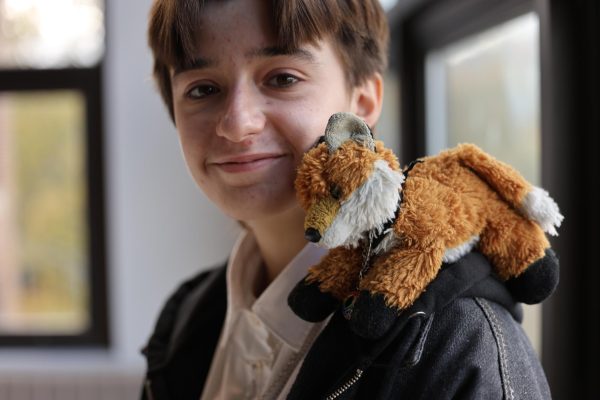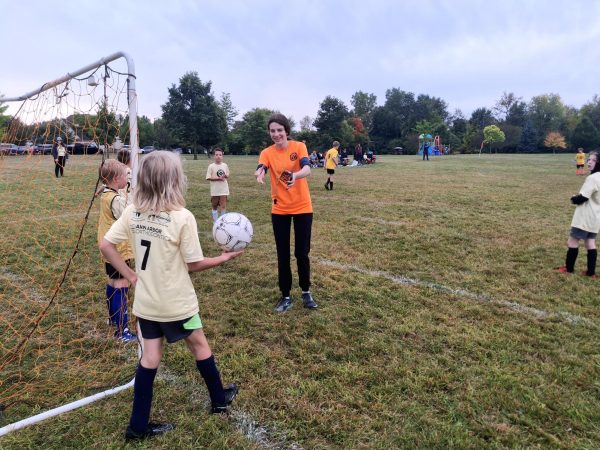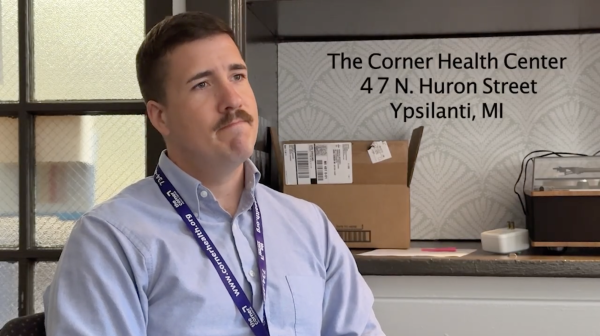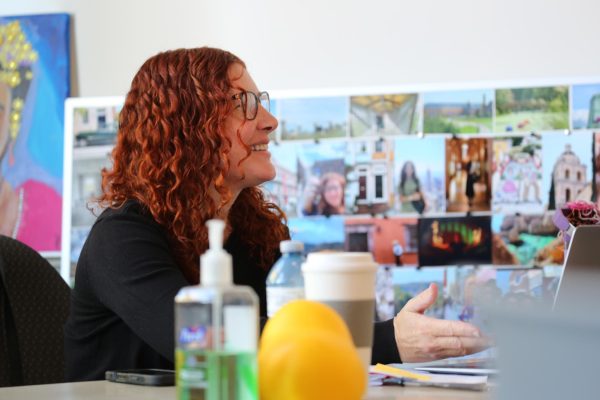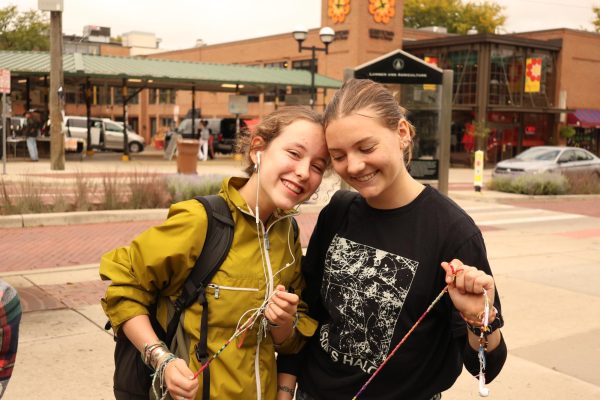Living through Hurricane Florence
On Sept. 13, 2018, Hurricane Florence hit North Carolina. The size of Florence itself spanned larger than the entire state.
“I got home from school and my mom asked me if I had heard about the hurricane,” said Deirdre Portu. “I said “no,” and she started getting really stressed out, talking about leaving the island. I thought she was just being dramatic.”
Portu is a former Community High School student and current resident of Carolina Beach, N.C. Her mom was not being dramatic, as over 1.7 million people had to evacuate due to Hurricane Florence.
Portu left North Carolina on Tuesday to escape Florence, leaving behind her home and friends.
“I woke up at a friend’s house and I got a text that said ‘we are leaving in a hour,’” Portu said. “By the time I got home, I had 40 minutes to pack for I don’t know how long.”
She packed and drove 20 hours to Ann Arbor to find safety.
North Carolina residents frantically prepared to evacuate, causing places like Carolina Beach to fall apart. “I was pretty happy at first, because school would be canceled. I was picturing staying home and hanging out with people,” Portu said. “But then I started getting pretty scared, because I would go out and the store would be empty. People were just going crazy; it felt like the island was falling apart.” She had no idea how bad the hurricane would be, starting at a category four and fortunately decreasing to a category two.
Portu had just started school in a new state and had just began to settle in, but now, just months later, she was preparing her house for destruction.
“We had a lot of prepping planned, but the evacuation came a lot sooner than planned,” Portu said. “so all I could do was move the stuff away from my windows. Leaving my house pisses me off a lot; we finally just got moved in and now it is getting destroyed.”
She has not been able to see her house yet, but she knows her paint is ripped off, her palm tree has fallen and her house is flooded. There is estimated to be 18 billion dollars in repairs from Florence.
Hurricanes can affect the victims emotionally as much as they can affect the land and homes.
“It has been really hard leaving because I just started settling in school and I just started getting close connections and friends, and now I am not going to see them for two weeks, which is a long time for a new friendship to go apart,” Portu said. “It has also been hard coming back to Ann Arbor; I was not really prepared to see everyone, and now I am going to have to leave again.”
In her case, Florence has been a rollercoaster of emotions.
Faith Hart is a junior at Ashley High School in Wilmington, N.C. Faith’s family chose to stay in Wilmington and face Florence head on.
“I first saw the news of the hurricane while watching T.V.,” Hart said. “I didn’t think much of it, because we always have hurricanes and they normally just fade out.”
Hurricane Florence was originally expected to be one of the worst hurricanes that area had seen in many years.
Hart had a lot of prepping to do before Florence hit.
“To prepare, we filled up all our cars with gas, bought a bunch of food and water, brought out our generator, and boarded up a few of our windows,” Hart said. After prepping, all she could do was hope for the best.
Florence was a threat to 10 million people. Although the storm was tracked far in advance, it went through many changes and was quite unpredictable shortly before it made landfall.
The anticipation of a storm is often very nerve-wracking, causing the environment around the victims to feel off.
“Before the storm, the environment of people seemed very nervous, and kind of eerie, and it still feels that way,” Hart said. “I think I was physically prepared with the extra food and protection, but I do not think anyone could have been fully mentally prepared for what the storm had to bring.”
People try to be as prepared as they can be, but are uncertain how bad the damage will be. It can cause a lot of worry and anxiety.
The destruction of hurricanes is devastating. Florence has left 42 dead.
“Depending on the area, the damage is pretty severe,” Hart said. “In some places, there are houses fully filled with water and some with trees inside of them. The worst part was driving around once the storm ended and seeing how wrecked and trashed our city is.”
Sometimes in times of crisis, you get to see a different side of people.
“You would think this storm would bring out the worst people, but it has really brought out the best in people; everywhere you go you go see people helping others,” Hart said. “From the day I heard about the hurricane to this day, I have learned that it is better to be safe than sorry. For example, boarding up your windows and getting extra water may be overreacting to some people, but it could save your life.”
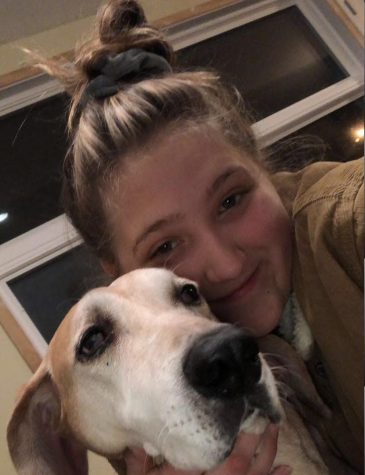
Sophie Nunez is a Sophomore at Community and it is her first year writing for the Communicator. She loves animals and spends the majority of her time riding horses, spending time with her bunnies and playing with her dogs. She also enjoys volunteering with rabbits and horses in need. She loves watching David Dobrik and Cody Ko. She also enjoys blasting Lady Gaga in the car with her best friend Hope. She talks very loudly all the time which can occasionally be annoying.




